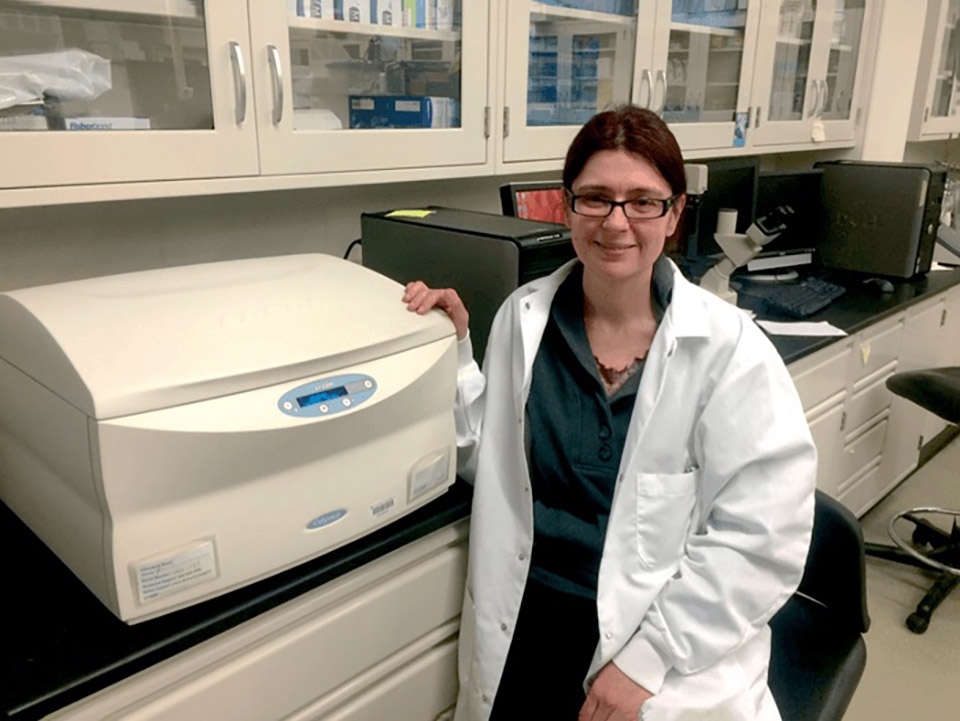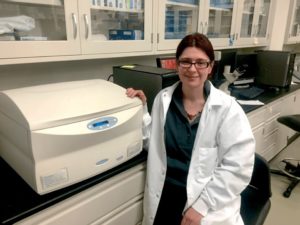

Duquesne University’s Jelena Janjic aims to combat the issue of inflammatory pain through the development of a new nanomedicine.
Gabriella DiPietro | Asst. News Editor
04/12/2018
With the opioid epidemic still on the rise, researchers are trying to develop more effective, alternative treatments for pain management — and a Duquesne professor has managed to do just that.
Jelena Janjic, Ph.D., founder and co-director of Duquesne’s Chronic Pain Research Consortium and associate professor of pharmaceutics, and her colleagues have developed the first nanomedicine targeting inflammatory pain in specific areas of the body.
The Chronic Pain Research Consortium is a unique collaborative group of patients, clinicians and basic scientists with combined expertise in pharmacology, medicinal chemistry, molecular imaging, neuroscience and animal behavior. Together, they work towards effective means of solving the challenges of pain management.
Janjic, being an individual who lived with inflammatory pain, was inspired by her own experience to design the nanomedicine in early 2011.
The medicine is designed to modulate immune cell behavior and lead to pain relief, targeting the immune cells involved in inflammatory pain caused by injury, trauma or infection, according to Janjic.
Janjic described the benefits of this nanomedicine, noting how it strays from the common opioid-based treatments currently available.
“The nanomedicine is loaded with non-opioid pain medicines, and because it is specifically targeted to cells involved in producing pain, it leads to a dramatic reduction of the needed dose for pain relief,” Janjic said. “In animal models, one or two injections lead to pain reduction that lasts from one to four weeks depending on the pain model used.”
In several animal trials, the dose administered was about 2,000 times smaller than typical doses of current anti-inflammatory medications.
The medicine has gone through a number of tests in multiple locations, including Professor John Pollock’s lab at Duquesne University, Professor Theodore Price’s lab at the University of Texas and at the laboratories of the 59th Medical Wing, the U.S. Air Force’s largest medical wing, led by Col. Erik Weitzel.
Janjic considers the newly-developed medicine to be an important step toward an improved treatment of pain.
“[The nanomedicine] is a completely new approach to treatment of pain which helps improve the efficacy of non-opioid pain medicines,” Janjic said. “The nanomedicine also would allow for a high level of patient treatment personalization.”
Although the nanomedicine is not yet ready for human use, Janjic and her colleagues are currently conducting extensive preclinical research. Clinical tests are also scheduled in upcoming months.
Janjic’s hope for the future is that pain nanomedicine reaches the clinic and is able to help people improce without suffering from the dangers posed by current opioid-based treatments.




